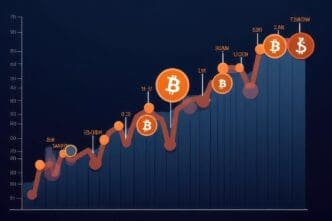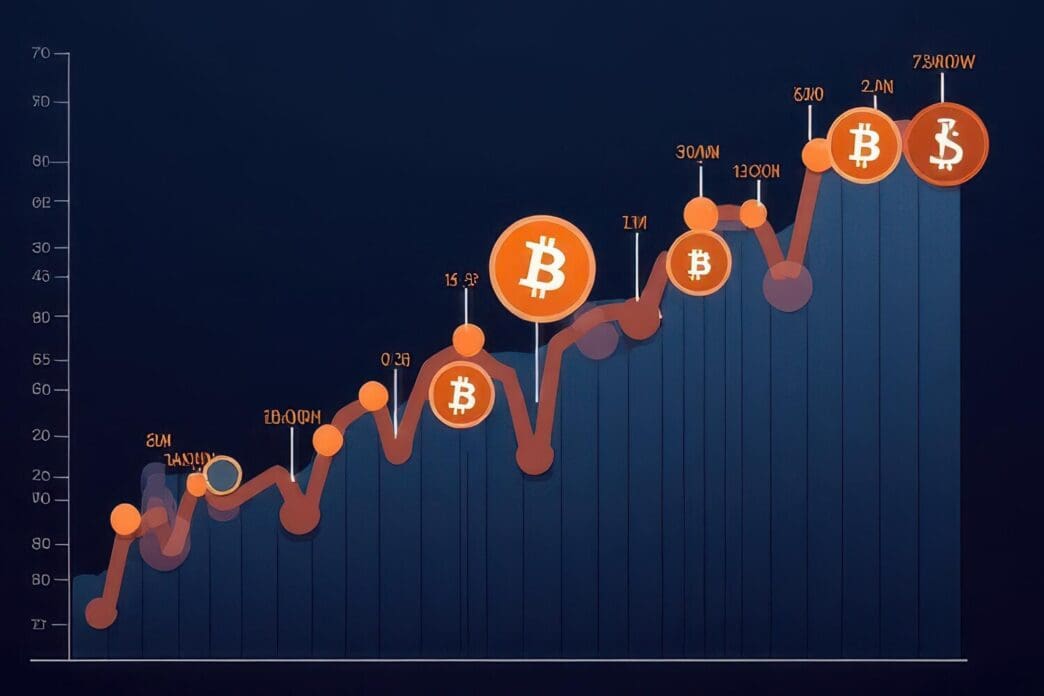Executive Summary
The Story So Far
Why This Matters
Who Thinks What?
A significant $15 million Bitcoin (BTC) stash, dormant for a decade, recently became active, coinciding with reports of Bitcoin hitting $116,000. This movement in the cryptocurrency market unfolds as broader financial landscapes react to anticipated shifts in central bank policy, particularly dovish expectations for the Federal Reserve, and a complex interplay of inflation concerns and currency fluctuations.
Cryptocurrency Market Dynamics
The reawakening of a long-dormant Bitcoin wallet, holding $15 million in BTC, has drawn attention within the crypto community, occurring as Bitcoin reportedly reached a price of $116,000. This event highlights the long-term holding patterns and potential for sudden market impacts from large, previously inactive supplies.
In other crypto news, Bitcoin is currently showing a short-term decoupling from gold, though analysts suggest its long-term correlation with the precious metal remains intact. This indicates a period where BTC’s price movements are driven by factors distinct from gold, but the underlying relationship persists.
Cathie Wood’s ARK Invest has also been active, with reports indicating a shift in portfolio strategy, including an investment in BitMine and an exit from Robinhood. Meanwhile, the meme coin sector continues to see activity, with Dogecoin reportedly confirming an uptrend, potentially reviving interest in Shiba Inu and Pepe. Separately, Charlie Kirk’s ‘Justice’ tokens have emerged as a new crypto flashpoint.
Macroeconomic Headwinds and Central Bank Policy
The wider financial markets are heavily focused on central bank actions, with economists widely predicting a 25 basis point Federal Reserve rate cut next week amid firm dovish bets. This expectation is a key driver for market sentiment across various asset classes, including cryptocurrencies and commodities.
Despite dovish expectations, US Consumer Price Index (CPI) data is anticipated to point to sticky inflation, exacerbated by persistent tariff pressures. Mounting stagflation fears are also contributing to a cautious outlook among investors, influencing currency valuations.
Currency Market Movements
The US Dollar Index (DXY) has seen its recovery lose steam, retreating from the 97.80 level, while the US dollar steadies amidst the aforementioned stagflation concerns. Analysts from ING suggest that three rate cuts have been validated for the USD.
In the foreign exchange market, EUR/USD has recovered the 1.1700 level, with scope to test 1.1760, as US CPI and jobless claims data weigh on the dollar. The AUD/USD pair refreshed a 10-month high near 0.6670, buoyed by upbeat market sentiment. Conversely, the Pound Sterling faces pressure as UK GDP growth remained stagnant in August, and the NZD/USD is unlikely to break above 0.5990, according to UOB Group. USD/JPY has remained steady in a tight range, potentially contained between 146.20 and 148.50.
Meanwhile, the European Central Bank is expected to keep interest rates unchanged for the second consecutive meeting, aligning with global central bank caution.
Commodity Market Performance
Precious metals have responded to the dovish Fed expectations, with Gold climbing above $3,650 and Silver tapping $42.00 for the first time since September 2011. This surge reflects investor flight to safe-haven assets and sensitivity to interest rate outlooks.
In the energy sector, WTI crude oil has declined below $62.00, driven by weak demand and oversupply concerns. For industrial metals, the World Platinum Investment Council (WPIC) continues to see the platinum market as significantly undersupplied, while OPEC, by contrast, forecasts a supply deficit, with underlying supply assumptions viewed as too optimistic by Commerzbank.
Overall, the financial landscape is characterized by significant activity in the cryptocurrency space, underscored by a notable Bitcoin awakening and shifting correlations, all set against a backdrop of evolving macroeconomic data, central bank policy expectations, and varied performances across currency and commodity markets.







